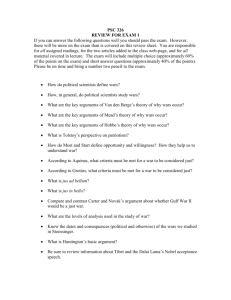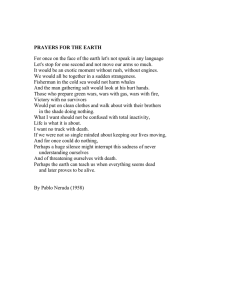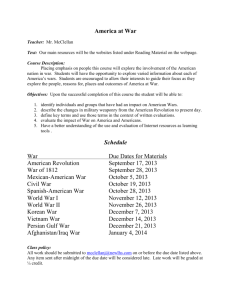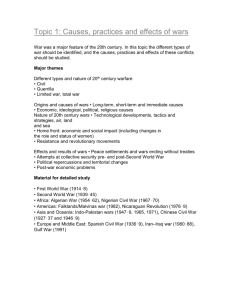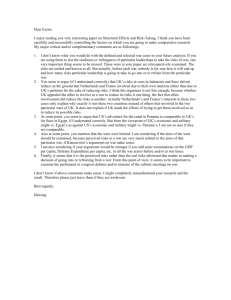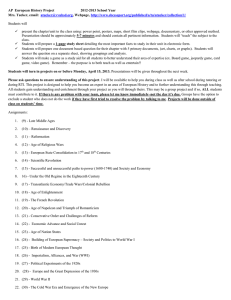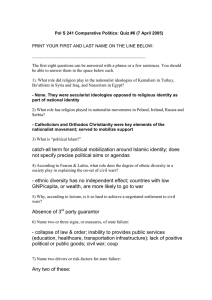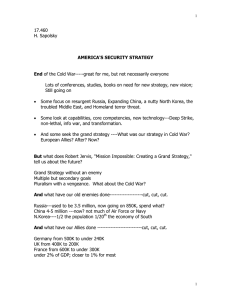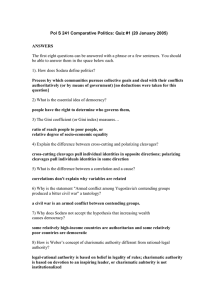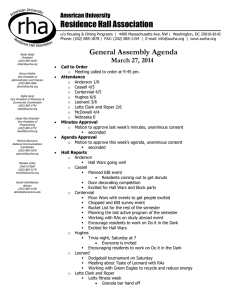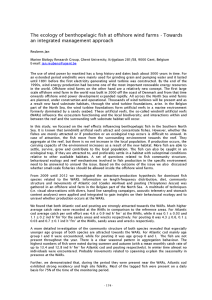International Relations: Interactions Among Countries
advertisement
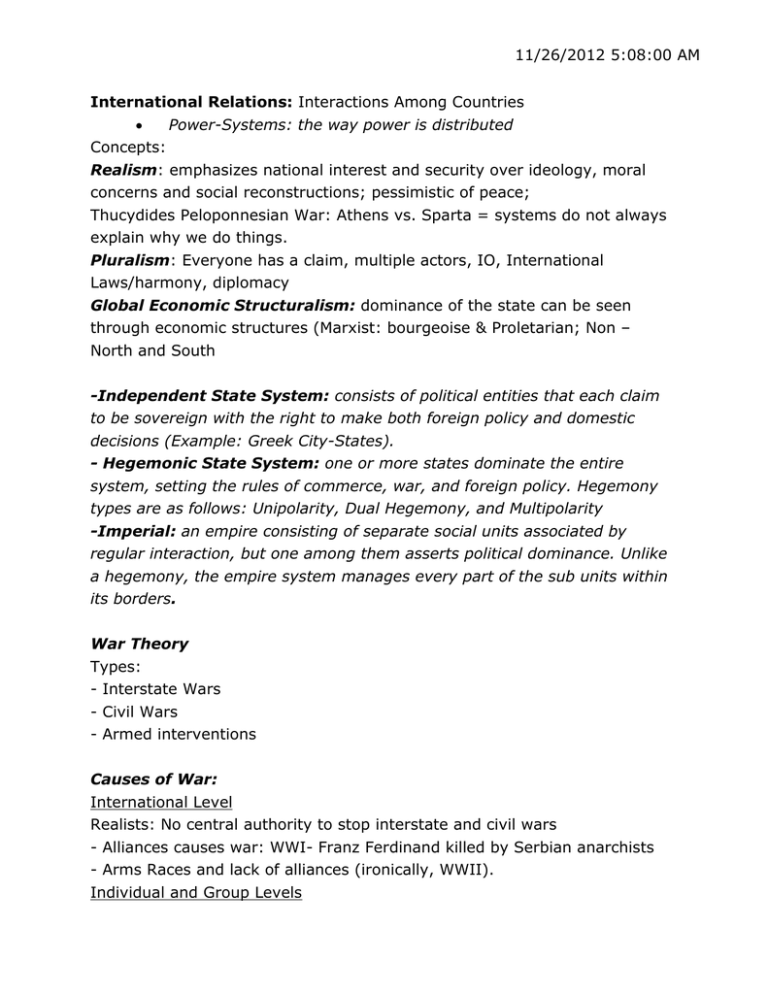
11/26/2012 5:08:00 AM International Relations: Interactions Among Countries Power-Systems: the way power is distributed Concepts: Realism: emphasizes national interest and security over ideology, moral concerns and social reconstructions; pessimistic of peace; Thucydides Peloponnesian War: Athens vs. Sparta = systems do not always explain why we do things. Pluralism: Everyone has a claim, multiple actors, IO, International Laws/harmony, diplomacy Global Economic Structuralism: dominance of the state can be seen through economic structures (Marxist: bourgeoise & Proletarian; Non – North and South -Independent State System: consists of political entities that each claim to be sovereign with the right to make both foreign policy and domestic decisions (Example: Greek City-States). - Hegemonic State System: one or more states dominate the entire system, setting the rules of commerce, war, and foreign policy. Hegemony types are as follows: Unipolarity, Dual Hegemony, and Multipolarity -Imperial: an empire consisting of separate social units associated by regular interaction, but one among them asserts political dominance. Unlike a hegemony, the empire system manages every part of the sub units within its borders. War Theory Types: - Interstate Wars - Civil Wars - Armed interventions Causes of War: International Level Realists: No central authority to stop interstate and civil wars - Alliances causes war: WWI- Franz Ferdinand killed by Serbian anarchists - Arms Races and lack of alliances (ironically, WWII). Individual and Group Levels - social-psychological makeup (gore vs. Bush) - groupthink State and Societal Level - nature or state society is in will dictate war - Democracy poses peace (Wilsonian Theory on Prussia) - Socialism fosters peace (Lennin – Democracy = capitalism = war competition- Schumpter had competing view) - World Federalists Theory Prussian General Carl Von Clausewitz (1780-1831)- use of force theory - wrote “On War” in 1832 “Wars were merely means to accomplish objectives not ends in themselves. Wars serve political objectives and nothing else.” - Armies are political agents and under the authority of political actors - we must destroy the enemies capability to war with us. (C) military capabilities (W) Will to use these means (E) Battlefield Effectiveness. E= C x W Deterrence: D= C x W Principles of War: Mass, surprise, concentration of force, economy of force Just War Theory Pacifism: rejects all forms of war. normative theory - jus ad bellum (right to go to war) jus in bello (right to conduct war) Plato’s disciple Cicero “Just wars should be fought Justly” Law of War: Hugo Grotius (Dutchman) or Just War Theory 1) Just cause to go to war 2) decision must be made by the authority of the state 3) armed conflict must be justified 4) some chance of success 5) last resort 11/26/2012 5:08:00 AM 11/26/2012 5:08:00 AM
